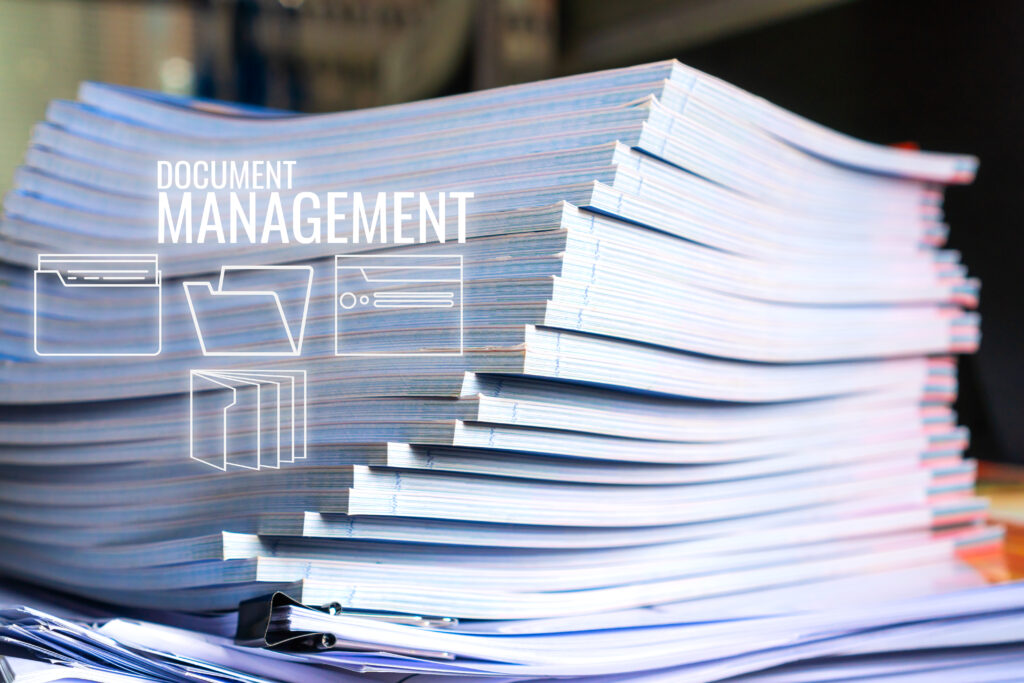Crafting an Effective Nonprofit Document Retention Strategy
- Contributor
- Melissa Frazier
Jan 25, 2024
Nonprofits, like many other organizations, must legally maintain certain records. But unlike many of their fellow organizations, the risk associated with not properly adhering to proper record keeping can have far-reaching implications for a nonprofit. Nonprofits often operate under public scrutiny and depend heavily on their reputation and the trust of donors, the public, and government entities. Failure to maintain accurate and complete records can lead to not only serious legal and financial consequences, but also damage to credibility and loss of public trust. Therefore, it is advised that nonprofits implement a comprehensive written policy for document retention, serving as a safeguard against legal scrutiny over destroyed documents.
Key Elements of an Effective Document Retention Policy
A robust document retention and destruction policy must be dynamic, adapt to changes in laws and organizational needs, and be efficiently administered to ensure compliance and effectiveness. When considering the policy’s design and implementation, it’s important to focus on several key aspects:
- Comprehensiveness: Does your policy encompass all essential documents, such as financial records, tax returns, contracts, employment documents, and digital communications, including emails, voicemails, and social media content?
- Employee Training: Are your staff members thoroughly trained in identifying documents that must be preserved and are they familiar with the specific preservation methods?
- Compliance Checks: Have you established a robust system for conducting regular compliance checks to ensure strict adherence to document archiving and backup procedures?
- Regulatory Updates: Do you regularly update your policy to reflect the latest changes in state and local laws that influence document retention periods?
- Legal Considerations: Is there a clear provision in your policy to suspend document destruction schedules in anticipation of a potential investigation, thereby avoiding obstruction charges?
Conducting periodic reviews is imperative to ensure the document retention and destruction policy remains effective. These evaluations allow for adjustments in response to changing legal requirements, organizational needs, and technological advancements.
General Retention Guidelines to Follow
Retaining documents beyond their necessary period can be as risky as their premature destruction. Excess retention can lead to increased costs, complexity, and difficulty in locating specific records, while also potentially exposing irrelevant records to legal scrutiny. To effectively manage your organization’s documentation, it’s important to adhere to the following retention guidelines, each tailored to different categories of records:
- Organizing Documents: Key documents like Form 1023, Articles of Incorporation, Bylaws, and IRS Determination Letter should be kept indefinitely.
- Tax and Financial Records: Retain detailed documentation for at least seven years, with certain records like returns kept permanently. Financial statements, bank reports, and audit reports have varying retention periods.
- Personnel Records: Compliance with state and federal regulations is crucial. Retention times vary from three to seven years, with some records like pension details needing permanent retention.
- Legal Documents: Contracts, leases, licenses, and intellectual property information should be retained for three years beyond their active period. Legal proceeding documents and items such as Board minutes require longer retention periods.
- Correspondence: Retention of emails, voicemails, and notices depends on the content. Implement a system to back up communications that surpass automatic deletion schedules.
It’s important to remember that a one-size-fits-all approach doesn’t work. Governance and management should collaborate with legal and financial advisors to tailor a policy that specifically meets the organization’s unique needs.
The high stakes involved in maintaining transparency, upholding ethical standards, and nurturing public trust make robust record management an essential element of nonprofit operations. Recognizing and embracing these significant responsibilities is crucial. If you have questions about your organization’s retention policies or need guidance, contact your CRI advisor. Our team is here to assist you in navigating these crucial aspects of your organization’s success.

































































































































































































































































































































































































































































































































